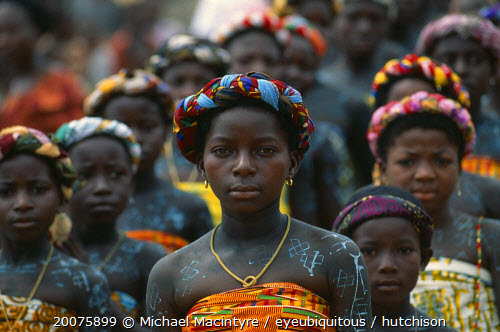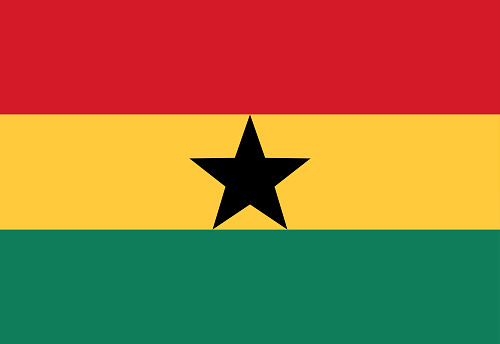Ghana, located in West Africa, is a country known for its rich cultural heritage, vibrant history, and dynamic growth. It is a nation that has played a pivotal role in Africa’s history, both politically and economically. With a population of over 32 million people, Ghana has emerged as one of the continent’s most stable democracies, and its cultural diversity, natural resources, and progressive development make it an exciting place to explore.
A Brief History of Ghana
Ghana’s history is deeply rooted in ancient kingdoms and civilizations. Long before the arrival of Europeans, the region was home to sophisticated societies such as the Kingdom of Ashanti, one of the most influential empires in West Africa. The Ashanti Empire, which flourished from the 17th to the early 20th century, played a significant role in the region’s politics, economics, and culture. The kingdom was known for its military strength, gold wealth, and a powerful centralized government.
In the 19th century, Ghana became a focal point of the transatlantic slave trade, with European powers, particularly the British, establishing forts and trading posts along its coast. Ghana was known as the Gold Coast during this time because of its abundance of gold.
In 1957, Ghana became the first African nation to gain independence from colonial rule under the leadership of Kwame Nkrumah. This event sparked a wave of decolonization across the African continent and marked Ghana as a symbol of African self-determination and pride.
Geography and Natural Resources
Ghana is located along the Gulf of Guinea, bordered by Côte d’Ivoire to the west, Burkina Faso to the north, Togo to the east, and the Atlantic Ocean to the south. The country is diverse in its landscape, ranging from tropical forests and savannahs to coastal plains and mountains. The climate varies from tropical in the south to dry and arid in the north.
Ghana is also blessed with abundant natural resources. It is one of the world’s largest producers of gold, and mining remains a key sector of the economy. Additionally, Ghana has significant reserves of bauxite, manganese, and diamonds. The country is also a major exporter of cocoa, which is a staple in the global chocolate industry. In recent years, the discovery of oil and gas in the Gulf of Guinea has further strengthened Ghana’s economic prospects.

Culture and Traditions
Ghana is a culturally rich and diverse nation, home to more than 70 ethnic groups. The largest groups include the Akan, Mole-Dagbani, Ewe, and Ga-Dangme, each with its own unique traditions, languages, and customs. The official language of Ghana is English, but many Ghanaians also speak indigenous languages such as Twi, Fante, Ewe, and Dagbani, reflecting the country’s linguistic diversity.
Ghanaian culture is known for its colorful festivals, music, dance, and art. Traditional drumming, such as the rhythms of the djembe, and dance forms like the Adowa and Azonto are integral to celebrations and ceremonies. Music genres like highlife, hiplife, and gospel music are popular, and Ghana has produced internationally recognized musicians.
Traditional dress is also a vital part of Ghanaian culture, with the Kente cloth being one of the most iconic symbols of the country. Kente is a woven fabric that carries rich cultural and symbolic meaning, often worn during special occasions, celebrations, and ceremonies.

Political Landscape
Ghana is recognized as one of Africa’s most stable democracies. It operates under a multi-party democratic system, and its political environment has been marked by peaceful transitions of power. The country’s commitment to democratic values has made it a model for other African nations.
Ghana’s government is a constitutional democracy, with a president serving as both the head of state and the head of government. The country has experienced successful elections and peaceful transfers of power, which has earned it respect in the international community. Ghana is also an active member of regional organizations like the Economic Community of West African States (ECOWAS) and the African Union (AU).
Economic Growth and Development
In recent years, Ghana’s economy has shown impressive growth. It is considered one of the fastest-growing economies in Africa, largely driven by the exploitation of its natural resources, particularly gold, oil, and cocoa. The country’s agricultural sector also continues to play a significant role in its economy, providing employment for a large portion of the population.
The discovery of oil in commercial quantities off Ghana’s coast has positioned the country as an emerging oil producer. This has contributed to the growth of industries such as energy, construction, and manufacturing. The government is also focusing on diversifying the economy by investing in sectors like technology, education, and infrastructure.
Despite the progress, Ghana still faces challenges such as income inequality, youth unemployment, and infrastructure gaps. However, the government’s efforts to promote economic reforms, improve governance, and attract foreign investment are laying the groundwork for long-term sustainable development.


Tourism and Attractions
Ghana is becoming an increasingly popular destination for tourists, thanks to its rich history, diverse culture, and natural beauty. Key tourist attractions include:
- Cape Coast Castle and Elmina Castle: These historic forts were used in the transatlantic slave trade and are now UNESCO World Heritage Sites, serving as reminders of Ghana’s history and the brutal legacy of slavery.
- Kakum National Park: Known for its canopy walk, Kakum is a tropical rainforest reserve offering a unique experience to explore Ghana’s diverse wildlife and plant species.
- Lake Volta: One of the largest artificial lakes in the world, Lake Volta offers opportunities for boating, fishing, and sightseeing.
- Accra: The capital city, Accra, is a bustling urban center with a vibrant arts scene, cultural landmarks, and lively markets etc.
Education and Youth
Education in Ghana has made great strides in recent decades. The country has a relatively high literacy rate compared to many other African nations, and education is free at the primary and junior secondary levels. Ghana’s universities and institutions of higher learning are gaining international recognition, particularly in the fields of engineering, science, and the arts.
However, challenges remain in providing quality education to all, particularly in rural areas. The government is investing in expanding access to education and improving its quality, with a focus on technical and vocational training to prepare young people for the workforce.
/GettyImages-639553537-5926cb4e5f9b58595039548e.jpg)
/GettyImages-504538959-5b3e72a246e0fb003764a565.jpg)
:max_bytes(150000):strip_icc()/GettyImages-lpi19688_5-5a4c0dde482c5200365b898d.jpg)
Challenges and the Road Ahead
Despite Ghana’s many successes, the country faces several challenges. These include managing economic growth, addressing unemployment, reducing poverty, and ensuring environmental sustainability. Additionally, as Ghana continues to urbanize, infrastructure development, including roads, healthcare, and housing, will be key to accommodating a growing population.
However, Ghana’s resilience, political stability, and commitment to development position it well for the future. The country’s youthful population, natural resources, and increasing role in regional trade make it a promising nation on the rise.

Ghana is a nation with a proud past and a bright future. Its rich cultural heritage, political stability, and natural resources provide a solid foundation for continued growth and prosperity. As Ghana continues to address its challenges and capitalize on its strengths, it remains one of Africa’s most inspiring and dynamic nations, offering hope and opportunity for its people and the continent at large.


